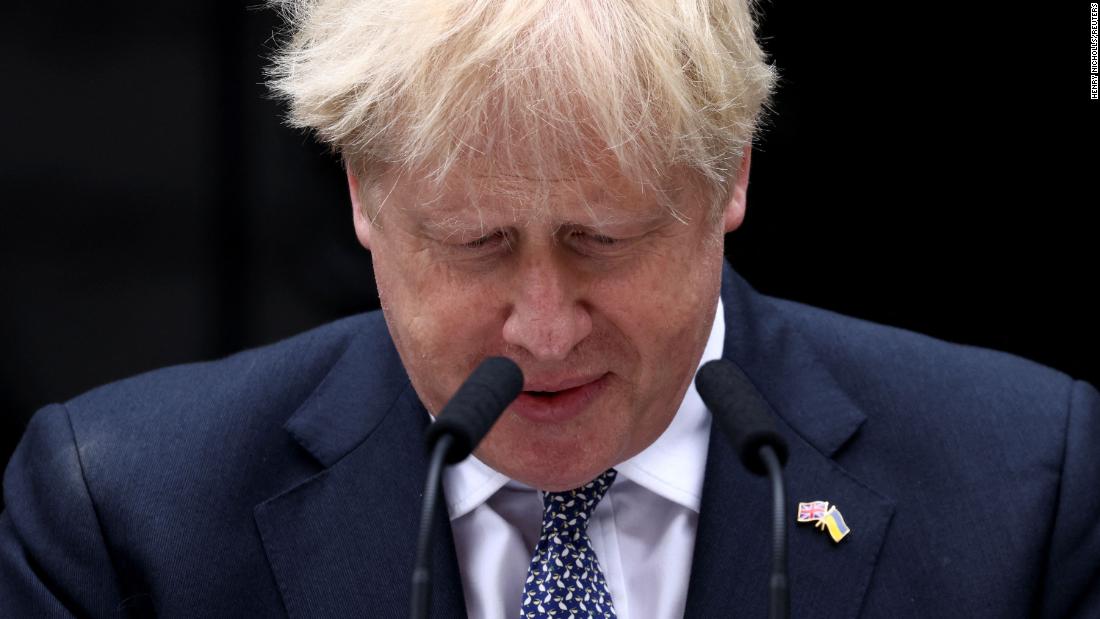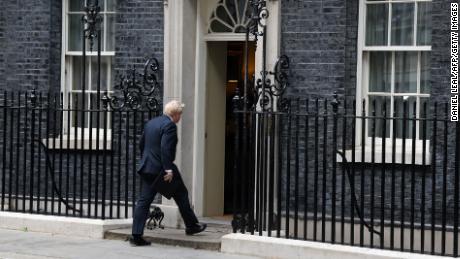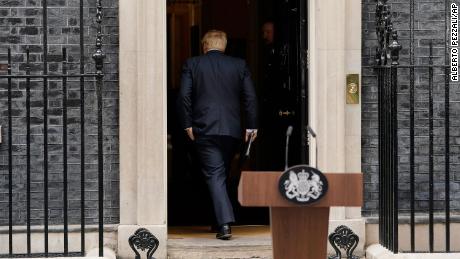
To try to understand where the heads of Conservative members are, CNN spoke with multiple officials and lawmakers from all over the party. They all spoke on the condition of anonymity, so that they could be as honest as possible at a very turbulent time when individual jobs are at stake.
For the vast majority of Conservatives who spoke to CNN, this is a moment of great relief. “It would have been a lot better if he’d gone 24 hours earlier, when members of his own government were telling him it was time,” says one former cabinet minister. “But I am optimistic that a new leader can sweep all of that away. It just needs to happen quickly.”
The “all of that” the former minister refers to is the reputational damage that Johnson’s behavior in office — from law-breaking to clinging to power — has done to the party.
A Conservative official told CNN that “Johnson was the problem. Now he’s going, we can get back to looking like sensible Conservatives rather than what he’d turned the party into.”
The official reiterated that the process must happen as quickly as possible. The official also pointed out that Johnson’s version of the party was necessary in 2019 to resolve the Brexit crisis and win an election, but that his particular brand of populism wouldn’t work without the popularity.
The reason for this sense of urgency is that, with Johnson now caretaker PM, the party is acutely aware that having a man in Downing Street whom they all said needed to go just days ago, and whose public approval ratings are absolutely dire, is not a great look.
Fears that he will try to hang on appear to be somewhat overstated. While some MPs were furious that Johnson’s speech didn’t mention the word “resign” and effectively blamed them for his ousting, rather than taking personal responsibility, no one who spoke to CNN seriously believes he is going to become a permanent squatter in Number 10. Not least because the party’s MPs now have the authority to get rid of him through its own internal rules — a level of authority they didn’t have until this week.
Not everyone is so optimistic, however, that the damage done to the party by Johnson can be so easily swept away.
“The final 48 hours before he finally accepted it was over will confirm to people who, incorrectly, suspect that Conservatives are selfish people who put themselves before the national interest,” says a party adviser. “That is going to be hard to battle against when we’ve been in power for so long and people are naturally already turning away from us.”
The image of the Conservative Party after three years of Johnson and 12 years in power is not the only problem his successor must grapple with. With so many competing factions, party unity is a major issue, exacerbated by Brexit, the current cost-of-living crisis, culture wars and questions of personal liberty in the light of Covid restrictions.
The hardline, traditional Conservatives in the party are feeling particularly burnt by Johnson. “He was the closest thing to someone who they felt ideologically aligned with they will probably ever see in charge of the party,” says a government official. “They are now going to have to stomach someone who will inevitably be a lot softer.”
The softer, liberal Conservatives, who always found Johnson distasteful, are equally concerned that any new leader must be squeaky clean and as far from Johnson as is possible.
Finally, the Johnson loyalists are seething at his treatment. In the eyes of one long-standing supporter, Johnson was “a giant” who was “cut down” by smaller, jealous figures. “I honestly think it was a stitch-up and now we have to find someone who simply doesn’t exist: someone with his electoral appeal,” the ally adds.
That said, most Conservatives seem optimistic they can move beyond this ugly business. “The party ultimately only cares about one thing: staying in power and keeping their jobs,” says a former government official. “Johnson was that figure in 2019. Someone will emerge who they think, whether they like them or not, can win the next election. They will pretty much stomach anything if they think their jobs are safe,” the former official adds.
Taking over from Johnson is undeniably a daunting task. There is a huge range of people currently eying up the job, and they come from all across the party’s broad ideological base.
In the 12 years since taking power, the party has already seen a version of Conservatism that represents every point on that ideological base.
The real challenge for whoever becomes the next Prime Minister of the United Kingdom is whether or not they can find something that can convince the public that, after all this time in power, this centuries-old party still has something new to offer.

